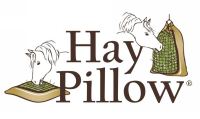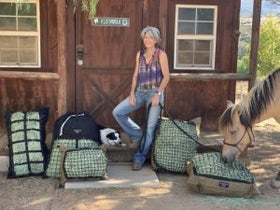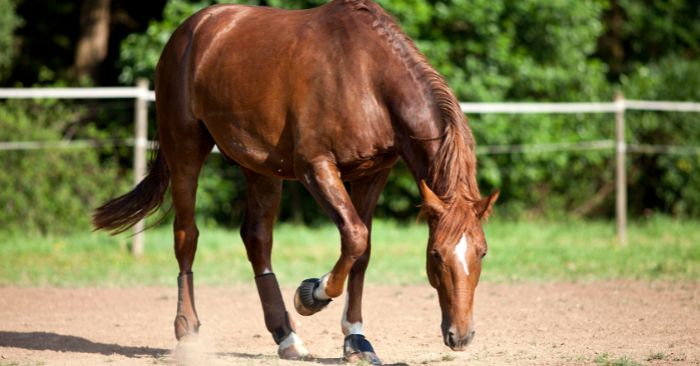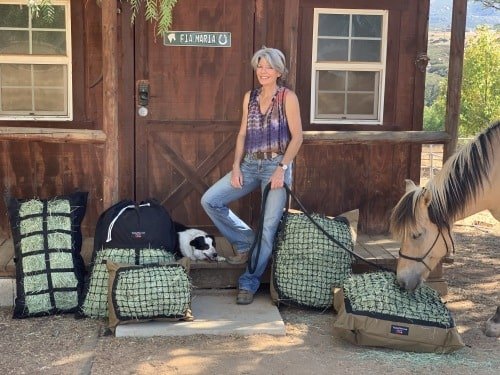Why Do Horses Paw?
Horses rarely do anything that doesn’t have a purpose. They don’t have the mental capacity to ponder and carry out acts intended to be annoying.
Read on to learn more about why horses paw, possible solutions, and how the source of pawing can be misconstrued.

Pawing with a Purpose
- Splashing in water
- Exposing forage under snow
- Exploring an unfamiliar object
- Softening soil before rolling or lying down
- Opening up a water hole
- Digging up roots
Pawing to Communicate Physical Discomfort or Mental Stress
Horses are expressive, effective communicators if we observe and listen. They rely on us for their care. I venture to say that we are far more intuitive to their vocal expressions. You know that soft sweet nicker, desperate whinny, or pitiful low nicker that says they need help.
Physical Discomfort - Possible Root Causes
1. Gastric and hindgut ulcers can be incredibly painful. Equines produce gastric acid (hydrochloric acid) 24/7 in preparation for constant food uptake. The most common causes of ulcers are lack of forage, acidic pH in the intestinal tract, and stress - creating a self-perpetuating ulcer recipe. (Note forage buffers gastric acid.)
Ulcers are a slow or non-healing gastric acid burn, which would feel like hydrochloric acid being splashed on your face, OUCH! The acids can damage the tissue to the extent they create an ulcer deep enough to cause bleeding or even burn completely through the tissue.
2. Orthopedic pain. A study of 41 Standardbreds, conducted at Cornell University by Christina L. Butler and Katherine Albro Houpt, discovered the horses tended to paw more in the four hours after exercise compared to before. Many of them also tried to stand with their back legs in the hole they created.
“Getting the back legs in a lower position helps take weight off the front legs, which could be a sign of pain in those front legs, especially after a workout,” Houpt said. “Pawing in the stall appears to be a naturally learned repetitive behavior that might reflect an effort to ease pain in the limbs or abdomen, she said.
Interestingly, the researchers added, pawing occurred the least on Sunday afternoons, when the horses were not exercised. It is important to note that exercising on an empty stomach could have been a contributing factor - the study discovered that most pawing occurred four hours after exercise. Exercise on an empty stomach allows unbuffered gastric acid to slosh and bathe the stomach lining, causing discomfort.
- If your horse rarely paws and then suddenly starts, it could be a sign of colic. Take action to address colic immediately. Learn more in our post 7 easily implemented measures to decrease the risk of colic.
- If your horse paws and shows signs of discomfort on a somewhat frequent basis, consider it may be recurring colic. When pawing resolves itself without intervention, it may be misconstrued as impatience or hunger without digging deeper into the root causes. Possible causes of recurring colic can be ulcers, feed changes, medications, exercise changes, transportation, social stress, heat cycles, tumors, parasites, enteroliths or accumulation of sand.
Mental Stress - Possible Root Causes
To stay occupied and engage their natural instincts, horses should have the opportunity to engage in a variety of activities. In nature, their activities consist of:
- Walking and grazing
- Interacting with herd mates
- Periods of rest
Pretty simple - although it does keep them occupied the 20 to 21 hours of their wake time. Horses sleep only 3 to 4 hours in a 24-hour period and usually no longer than 20 minutes at one time. Confinement and isolation, on the other hand, can cause anxiety-related stress, vices, and boredom – especially when they suppress a horse's natural instincts. See our tips for providing natural enrichment during your horse's down time.
Pawing: Potential Stereotypy
A stereotypy is a term for a group of phenotypic behaviors that are repetitive, morphologically identical and which possess no obvious goal or function. These behaviors have been defined as ‘abnormal’ as they exhibit themselves solely to animals subjected to barren environments, scheduled or restricted feedings, social deprivation and other cases of frustration, but do not arise in ‘normal’ animals in their natural environments.
....As stereotypies develop, they become more readily elicited, so much so that they are no longer just expressed during the original circumstances and may be expressed in the absence of any apparent stress or conflict. The development of the stereotypy into a habit and the difficulty of interrupting said habit explain why it is expected that the frequency of stereotypies increases with age.... and despite making changes to provide a more enriching environment, stereotypies typically persist.
Simple Solutions
The root cause of pawing can often be easily identified such as:
- When tied, boredom sets in - This can easily be remedied by supplying a hay bag. You too would quickly get bored if you were tied up or anticipation of discomfort resulting from gastric acid bathing the stomach lining if ridden on an empty stomach or transported on an empty stomach.
- Anticipation of a treat - Try changing up when you give treats. For instance, if given when you arrive at the barn, wait and give them one when you put the halter on and take them out. The next time wait until after your ride. You won’t be setting your horse up to be anxious!
Misconstrued Perceptions
Try to think like a horse to identify mental root causes. Horses are prey animals relying on sight, sound, smell and flight in order to detect and flee from perceived danger. If any of these are impaired, they are justified in feeling anxious. Despite domestication, it is our responsibility as guardians to provide the least stressful and most enriching environment as possible.
In Summary
Helpful How to Resources
- Can Horses Eat More Hay Without Weight Gain? The Surprising Factors
- Sand Colic - The Surprising (Simple) Cure & Prevention
- Horse Boredom Busters - Toys & Enrichment Tips for Stall or Pasture
- Are You a Prisoner of Feeding? Here's How I Broke Free
- How to Introduce & Incorporate Free-Choice Forage: A Detailed Action Plan
- Slow Feed Solutions for Any Environment
- 6 Great Reasons to Feed Your Horse from Ground Level
- 9 Benefits of Slow Feeding Horses
- 7 Slow Feed Dos and Dont's for Horses
- 7 Easy Ways to Help Prevent Colic
- Equine Gastric Acid - 12 Facts You May Not Know
- Never Exercise Horses on an Empty Stomach...Ever
- Why You Shouldn't Transport Horses On An Empty Stomach
- Keeping Horses Warm Naturally – Internally and Externally
- Why Most Horses Prefer to Eat Outside
References
- Larson, Erica. 2011, Aug 22. Chronic Colic in Horses: What to Consider. Retrieved from https://thehorse.com/119720/chronic-colic-in-horses-what-to-consider/
- Nash. 2015, June 22. Gastric Ulcers in-relation to Muscular pain. Retrieved from https://www.animal-mrt.com/blog/post/8305/Gastric-Ulcers-in-relation-to-Muscular-pain/
- McDonnell, Sue PhD, Certified AAB. 2008, February 1.Pawing Problem. Retrieved from https://thehorse.com/125971/pawing-problem/
- Lesté-Lasserre, Christa MA. 2015, February 21. Study: Pawing Could be Indicative of Discomfort. Retrieved from https://thehorse.com/111409/study-pawing-could-be-indicative-of-discomfort/
- Equimed Staff. 2014, August 5. DISEASES AND CONDITIONS Pawing. Retrieved from https://equimed.com/diseases-and-conditions/reference/pawing
- Williams, Jennifer PhD. Updated 2018, July 13. How to Read Your Horse's Body Language. Retrieved from https://equusmagazine.com/behavior/horse-body-language
- Cherry Hill. 2009. Horse Pawing. Retrieved from https://www.horsekeeping.com/horse_behavior/pawing.htm
- Wikipedia. 2019,June 19. Stereotypy (non-human). Retrieved from
- https://en.wikipedia.org/wiki/Stereotypy_(non-human)





